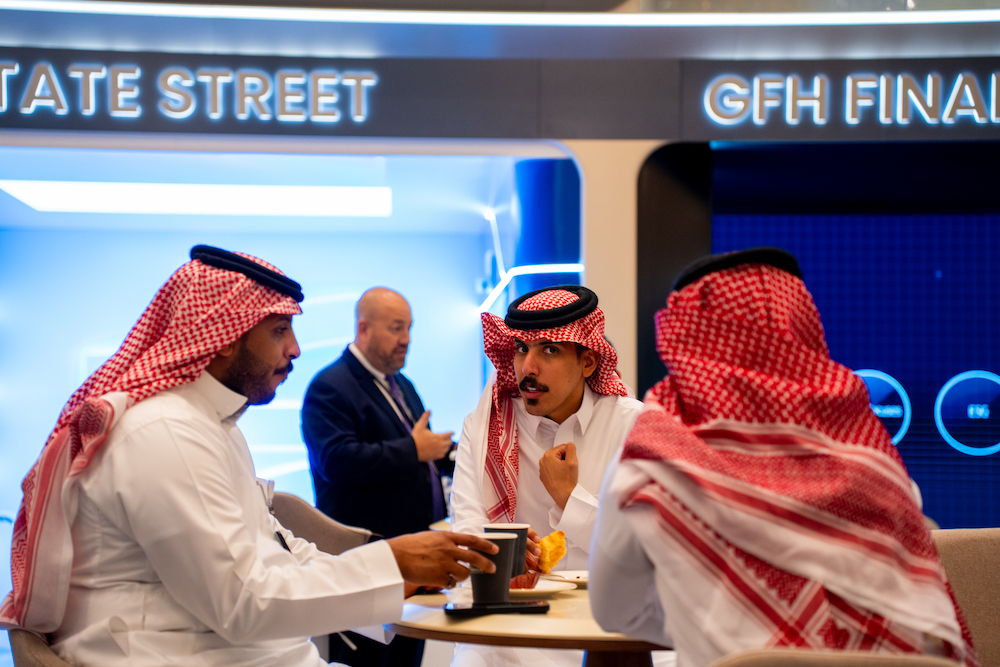RIYADH: Saudi Arabia’s Public Investment Fund and Brookfield Asset Management Ltd. have signed a non-binding memorandum of understanding for the wealth fund to become a strategic anchor investor in Brookfield Middle East Partners.
According to a press release, this new platform, BMEP, will serve as Brookfield’s private equity vehicle for investments in Saudi Arabia and the broader region.
The MoU was finalized during the Future Investment Initiative summit currently underway in Riyadh.
BMEP aims to raise $2 billion from various investors, focusing on buyouts, structured solutions, and other investment opportunities across key sectors, including industrials, business and consumer services, technology, and healthcare.

Saudi Arabia is hosting the eighth edition of the Future Investment Initiative summit in Riyadh. AN/Abdulrahman bin Shalhuob
At least 50 percent of the capital will be directed toward investments in Saudi Arabia, as well as into leading international companies looking to expand in the local market, facilitating foreign direct investment into the Kingdom.
This partnership seeks to combine the strengths of PIF and Brookfield to enhance local private equity investment opportunities and promote economic development in Saudi Arabia, further supporting the country’s vision of becoming a leading hub for global investment and economic growth.
Yazeed A. Al-Humied, deputy governor and head of MENA investments at PIF, stated: “PIF’s collaboration with Brookfield demonstrates our continued efforts to foster international partnerships that enhance local markets.”
He added: “This MoU represents a step toward achieving PIF’s vision of attracting global capital and expertise to the region while facilitating knowledge transfer and capacity-building within Saudi Arabia.”
PIF has been actively promoting Saudi Arabia’s economic transformation and diversification, driving local growth and impacting global industries. Since 2017, PIF has launched 95 new companies within the Kingdom and has generated over 1.1 million direct and indirect jobs globally.

Saudi Arabia is hosting the eighth edition of the Future Investment Initiative summit in Riyadh. AN/Abdulrahman bin Shalhuob
Expressing enthusiasm over the partnership, Brookfield Asset Management CEO Bruce Flatt said: “We are honored to partner with PIF on this landmark private equity fund. Saudi Arabia is core to the region’s economic transformation, and we look forward to contributing to its growth by investing at scale in market-leading companies that will benefit from our deep operating capabilities.”
He added: “With our expanding presence in Riyadh, we are excited to bring our global expertise to participate in the development of the local private markets ecosystem.”
Brookfield, one of the largest foreign investors in the GCC, has been present in the region since 1997, making direct investments since 2015. Its portfolio, valued at $12 billion, encompasses private equity, real estate, and infrastructure. Brookfield’s strategy focuses on fostering long-term partnerships with leading local institutions, which sets it apart in the region.
As part of the MoU, the asset management company will expand its Riyadh office and make Brookfield Academy available locally, enabling skill development for investment professionals and supporting PIF’s commitment to fostering local talent.
This non-binding MoU is subject to obtaining regulatory and internal approvals and is contingent upon the satisfaction of specific conditions, the press release said.





















